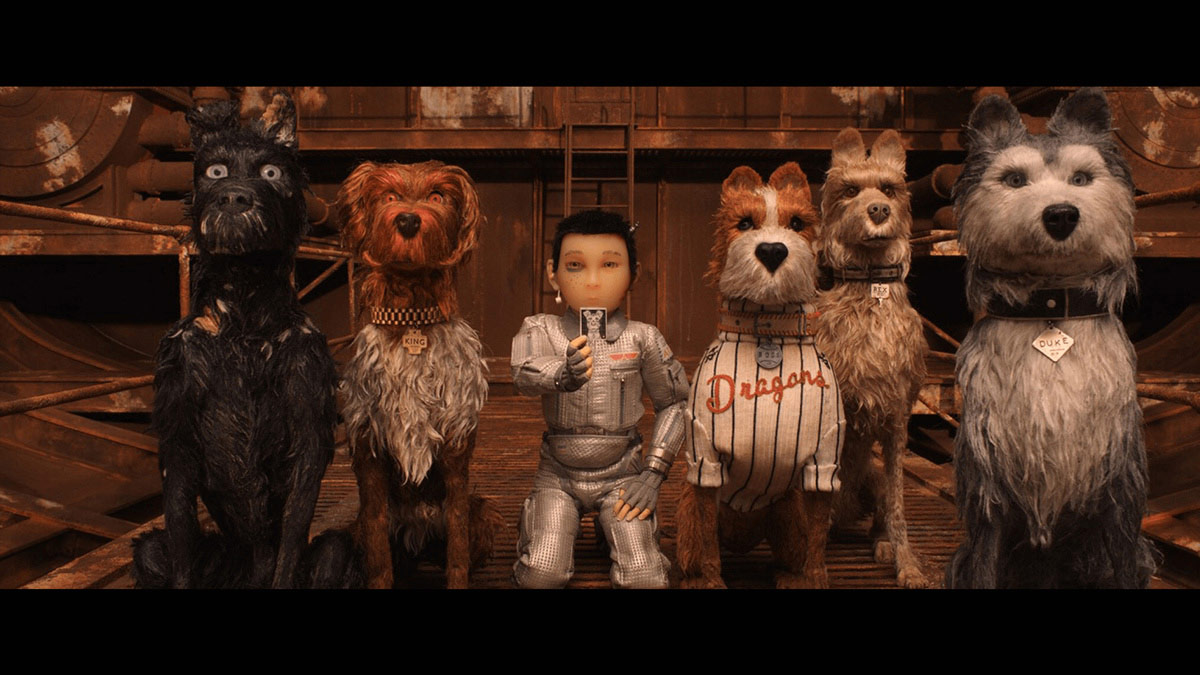
©2018 Twentieth Century Fox Film Corporation
"Isle of Dogs": The inevitable encounter between Wes Anderson's miniature garden world and Japonisme
2018.05.27
Between the possibility and impossibility of translation
Moving away from the topic of visual expression, Wes takes a unique approach to the language used in Isle of Dogs. The people who live in Megasaki City, Japan, where the story is set, naturally speak Japanese. The exceptions are Tracy (Greta Gerwig), an exchange student from the United States, and Nelson (Frances McDormand), an interpreter for a foreign news program. Main events in Megasaki City are discussed in this news program, so English-speaking audiences can listen and understand the English translation.

“Isle of Dogs” ©2018 Twentieth Century Fox Film Corporation
On the other hand, the conversations between the dogs are expressed in English. Dogs and humans generally cannot communicate, but Atari's guard dog Spots was equipped with a translator, so they were able to communicate.
A bold move was not to use English subtitles for the Japanese words spoken by the Atari boy to his dogs and the informal conversations of the people of Megasaki City. When Hollywood studios make feature films set in foreign countries, whether it's ancient Greece and Rome or medieval continental Europe, they often make all the characters speak English. Audiences accustomed to such - and, if you think about it, extremely arrogant - American style, would have been taken aback. In fact, there seems to have been some criticism in English-speaking countries, saying that the film depicts Japanese people as beings that are incomprehensible.
However, considering that Wes himself has spoken of his respect for Japanese culture and his homage to Japanese films such as the works of Akira Kurosawa, this approach is clearly an attitude of a director who respects foreign languages and cultures and acknowledges diversity. It probably reflects that. Some parts of foreign culture and thought can be translated, while others cannot. However, even if people do not speak the same language, there is still the possibility of communicating through non-verbal means. Atari boy and the dogs also communicate with each other, although they cannot talk. In "Isle of Dogs," Wes may be trying to show that it is possible to understand each other even with people who don't speak the same language, even in seemingly unkind ways.
Text: Ikuya Takamori
Freelance writer, English-Japanese translator. Mainly contributes movie reviews and columns to web media, and translates news articles. The translated book is ``Science of Star Wars--Thorough verification! From the true nature of the Force to intergalactic travel” (written by Mark Blake and John Chase, published by Kagaku Doujin) and others.
"Isle of Dogs"
©2018 Twentieth Century Fox Film Corporation
*Information at the time of article publication in May 2018.
*[Apology and correction]
There was the following error in the notation in this article.
(Incorrect): Muppets (Correct): Puppet
We apologize to everyone and would like to make a correction here.

